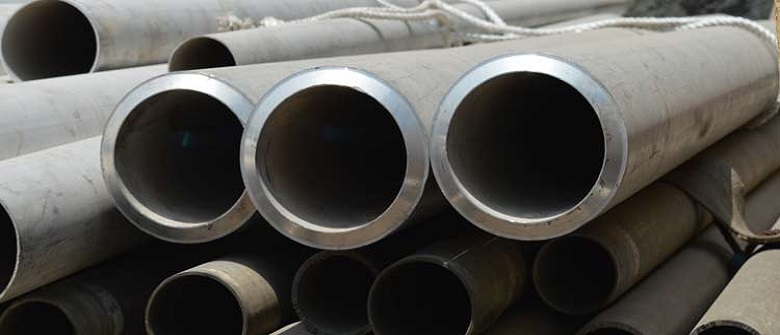Stainless Steel Pipe
Stainless Steel Pipe is mainly used in piping systems to supply fluids or gases. We manufacture Stainless steel pipe from a steel alloy containing nickel and chromium, which gives stainless steel its corrosion-resistant properties. Due to its oxidation resistance, a stainless steel pipe is a low-maintenance option that works well in chemical and high-temperature applications. Stainless steel pipe is also needed for applications like food, beverage, and pharmaceutical industries since it is simple to sanitize and clean.
Extrusion or welding are frequently used in the production of stainless steel pipes. In order to keep the shape after the seams have been welded together, steel must first be formed into a pipe shape. When a steel rod is heated and then split along the middle to form a pipe, extrusion produces a seamless result.
Although the terms "pipe" and "tube" are frequently used to refer to the same item, it is crucial to understand the distinctions. Steel tubes are measured by the outer diameter (OD) and wall thickness, whereas steel pipes are measured by the internal diameter (ID), despite the fact that they both have a cylindrical form. Another distinction is that whereas tubes are used to construct pieces or structural elements, pipes are utilized to transfer fluids and gases.
Benefits of Long lasting and Corrosion Resistance
304L and 316L grades of stainless steel pipe are available, and they are welded and fabricated in accordance with ASTM A-312 and ASME SA-312. Our welded stainless steel tubing is typically made in diameters ranging from 1/8" nominal to 24" nominal. Additionally, we provide seamless stainless steel pipe made to ASTM A-312 standards and available in both 304/L and 316L steel grades. Our seamless stainless steel pipes normally come in nominal sizes between 1/8" and 8".
Seamless Pipe
A Seamless pipe is a pipe that does not contain any seams or weld joints. Due to the metal's inherent properties, it can withstand high temperatures and pressures. It is employed in several different oil and gas applications, but it is also employed in the mechanical and engineering sectors. Because of this, seamless pipes are quite adaptable, and the material's quality is constantly verified through a meticulous inspection.
Welded Pipe
Welded pipes can be used in virtually every industry thanks to its flexibility. They do better at resisting corrosion than in withstanding pressure, though. Welded pipes are significantly more cost-effective than most other pipeline technologies and provide the most value for your money because of the materials used and their lightweight nature.
Flanges
Another crucial component of your total plumbing arrangement is pipe flanges. These are available in a variety of shapes, including slip-ons, blinds, lap joints, threaded, and semis. Pipe flanges are always built from high-quality materials and are constructed from solid, long-lasting components to assure their dependability.





Comments